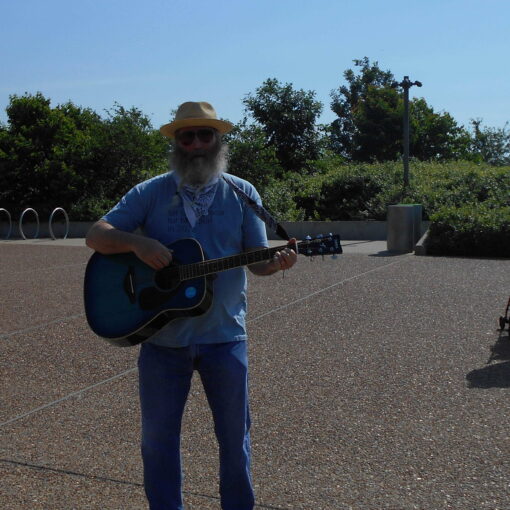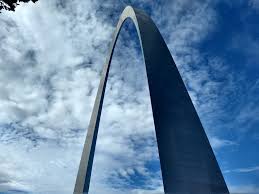The technology of censorship starts with an automated and/or manual scanning of speech segments. This can be a textual scanning or spoken speech. Then, the text and/or spoken words are then disambiguated, parsed into some level of meaning. At the simplest level, meaning can be an automated lookup of keywords and phrases which raise a warning flag. Examples of a keyword might be ‘f*ck you’ while a phrase might be ‘lets go brandon’. At higher levels of disambiguation, the automated scan can raise warnings about the meaning. Does the text match an agenda? Finally, after this process, censorship is applied. In YouTube for example, mention of the keyword ‘f*ggot’ can disqualify a user. It is obvious that much of this must be automated due to the huge amount of digital media that is produced every day.
An analogy can be made with the second amendment. Compare a single fire musket with a fixed bayonet against a modern fully automatic sniper rifle — both are arms, but technology has greatly enhanced the capability, and given new functionality. In the Revolutionary war of 1776, close standing formations of troops marched against each other. Troops shot off their gun, then paused to reload their muzzle. The use of the bayonet was quite practical. Today, one man can squeeze off hundreds of rounds in a few minutes and can cause a mass casualty event. A good example, is the Route 91 Harvest Festival killing in Las Vegas in 2017. Stephen Paddock killed 58 people in 11 minutes, and wounded 500. Lawyers, Judges, and politicians believe that their legal training, courtroom experience, and standing give them special wisdom. Meanwhile the technology marches on. I don’t mean to belittle our Justice system, but I do believe that to ignore technology is to be blind to the real world.
The first amendment basically gives the owner of the media distribution channel the right to censor. It is not the creator of the media, nor the government. So for example, if Elon Musk succeeds in buying Twitter, he will have control of all the tweets. He can ban users, individual tweets. Can he modify the text of a tweet? He can increase the gain of tweeters favorable to his agenda, and throttle back the gain of tweeters unfavorable. So, we might imagine highlighted tweets of inspiring SpaceX rockets of tomorrow, while tweets of labor organizers at Tesla might disappear. Personally, I am interested in the development of LH2 technology which has engineering implications to both SpaceX and Tesla electric vehicles. For if LH2 technology becomes practical, both SpaceX rockets and Tesla electric vehicles would be obsolete. LH2 may be the canary in the coal mine. It is not unreasonable, to envision a future where mention of the keyword ‘LH2’ will send your Tweet to dev null.
Many people in both parties — Republican and Democrat — are uneasy. They sense that technology is changing the First Amendment landscape. So, the Republicans are scared of a federal Ministry of Truth. While the Democrats are scared of broad well-funded disinformation campaigns targeted at Vaccines, Transgender, etc. Yes, we should feel uneasy. But I don’t think we should be blaming each other. Much of what is happening is due to the rapidly evolving technology, and individuals and organizations taking advantage. More sophisticated censoring can be used to skew text to push an agenda, that is to say to turn what was free speech into propaganda.
Free speech is about public discourse in public fora. Each forum, or media channel, is typically partisan and discussion is really propaganda. The most recent invasion of Ukraine by Russia shows how laughable propaganda can be. Ideally, there should be a least one forum that is independent, i.e. non-partisan. In this ‘safe place’, orators can stand on their podia, and speak from their lecterns, and debate their ideas, their positions on issues. When this is evident, one can smile and relax knowing that free speech is alive and healthy. But when demonstrators are picking up flag poles and using them as spears, or dangling lynching ropes, one should frown and be nervous about the health of free speech in America. Such is the case on January 6th. Or the people burn down their neighborhoods. Is this simply the rise of chaos and anarchy or is it because people don’t trust their society?
What can we do about this? Clubs like Toastmasters that encourage ordinary people to stand up and talk. Getting people to write blogs about their feelings, and their opinions. In political races, candidates should be encouraged, and given ‘air time’ to present their case. It is not right that only parties get to host their own events. I understand the realities of money, but it is a scandal that every Republican candidate goes to Mar-a-lago to seek approval, and hold expensive plate dinners. Or Democrat Blue digital fundraisers.
To be quite specific about this, I have been officially running for U.S. Senate for over a year. Because I don’t pledge allegiance to a party, I am a ghost candidate. There was a single reference to my candidacy by the NPR outlet. But there have been no mention in the print or broadcast media. I have been completely censored out of existence as a candidate because I’m not in a party. This can be thought of as a single data point, a single experiment. But the outcome really has surprised me.
If I had registered as a Democratic candidate, I would have been eligible to participate in the Missouri Blue events. Likewise, if I had registered as a Republican candidate. But because I didn’t register as a party member, I don’t exist. It is not because I haven’t tried. Politics is literally a business. Each party organization works to support its candidates. There is no room there for an outsider. So, why would one expect that there could be free speech in a public fora? If you are not part of the club, you are not welcome.
Another facet here are the single issue organizations, the ‘social justice’ orgs. They have a huge impact, but are not tied to a particular party. One would think that an independent candidate could successfully tie himself to an issue, and thereby get support and publicity. So, if I supported gun rights, I could get money from the NRA. That kind of thing.
Part of what is so nice about Twitter, is that I actually have a digital presence there.


